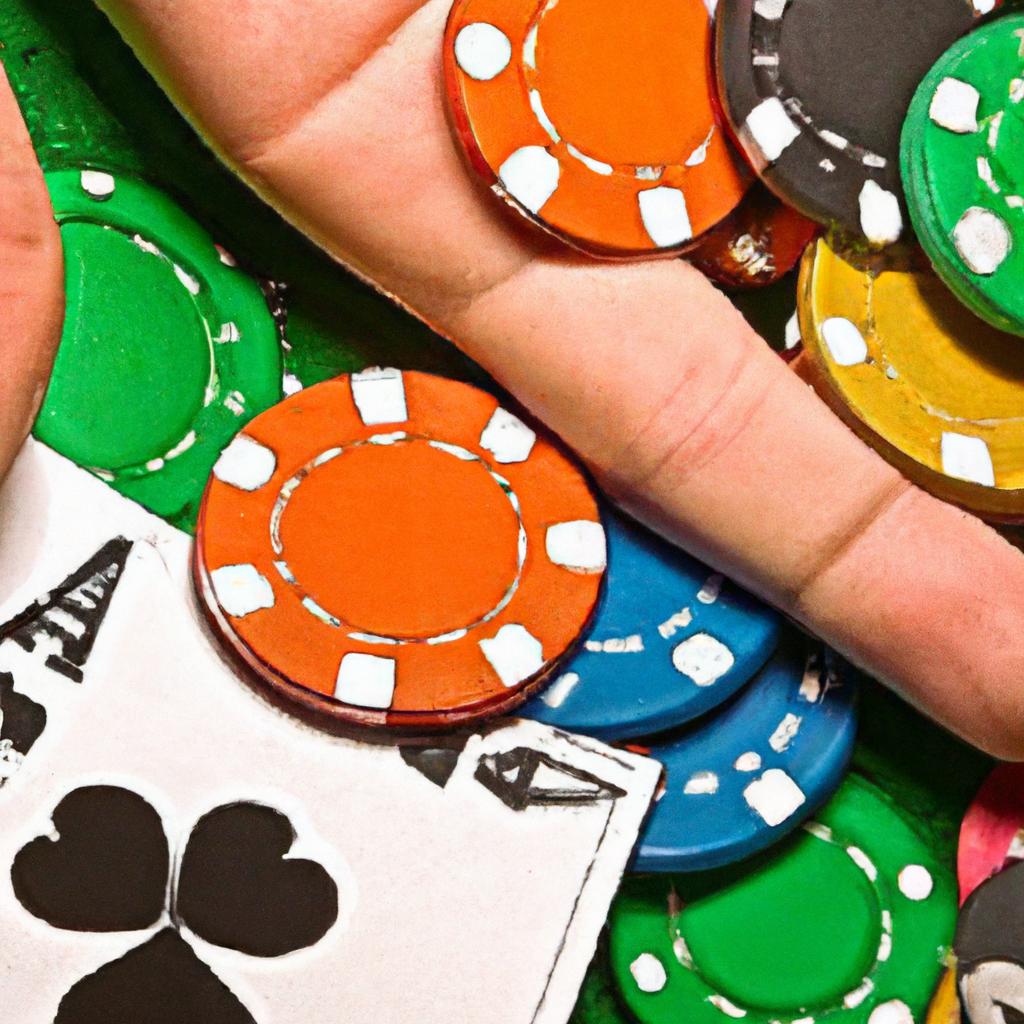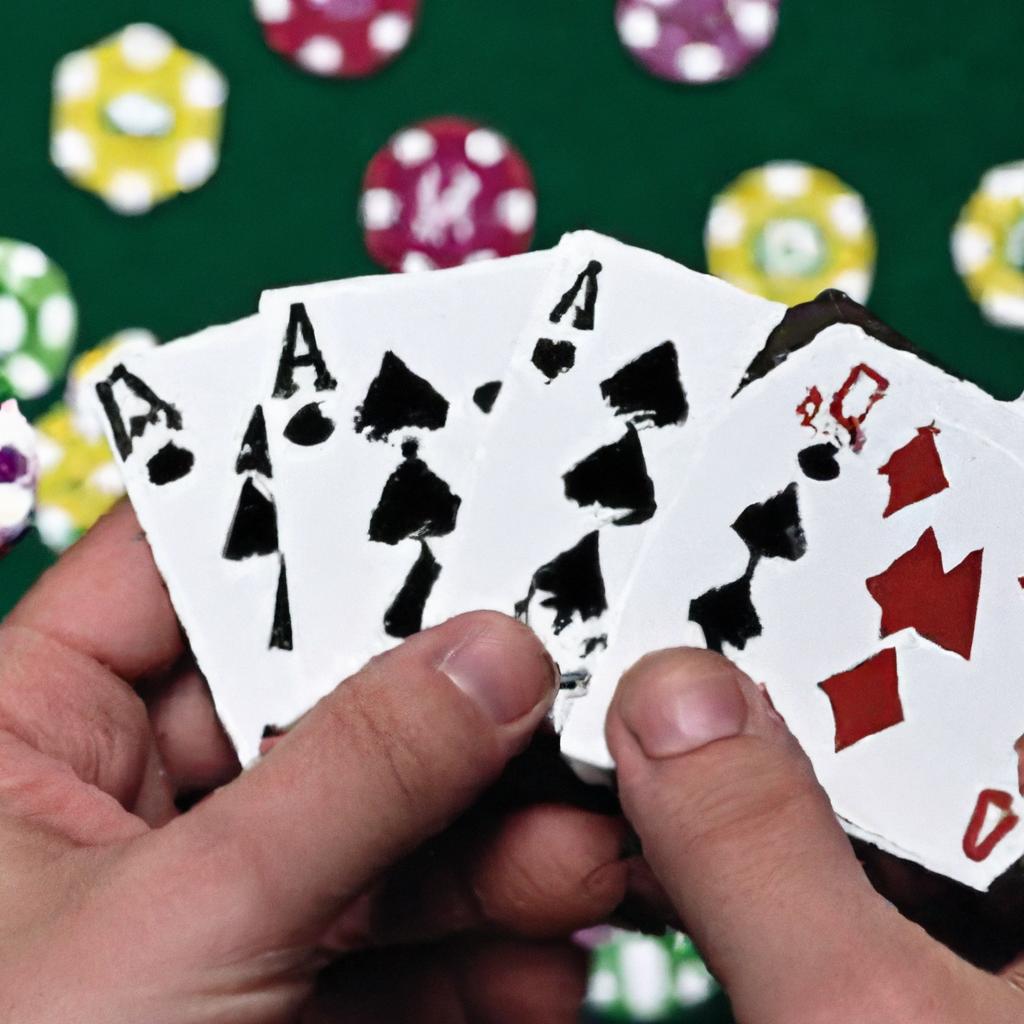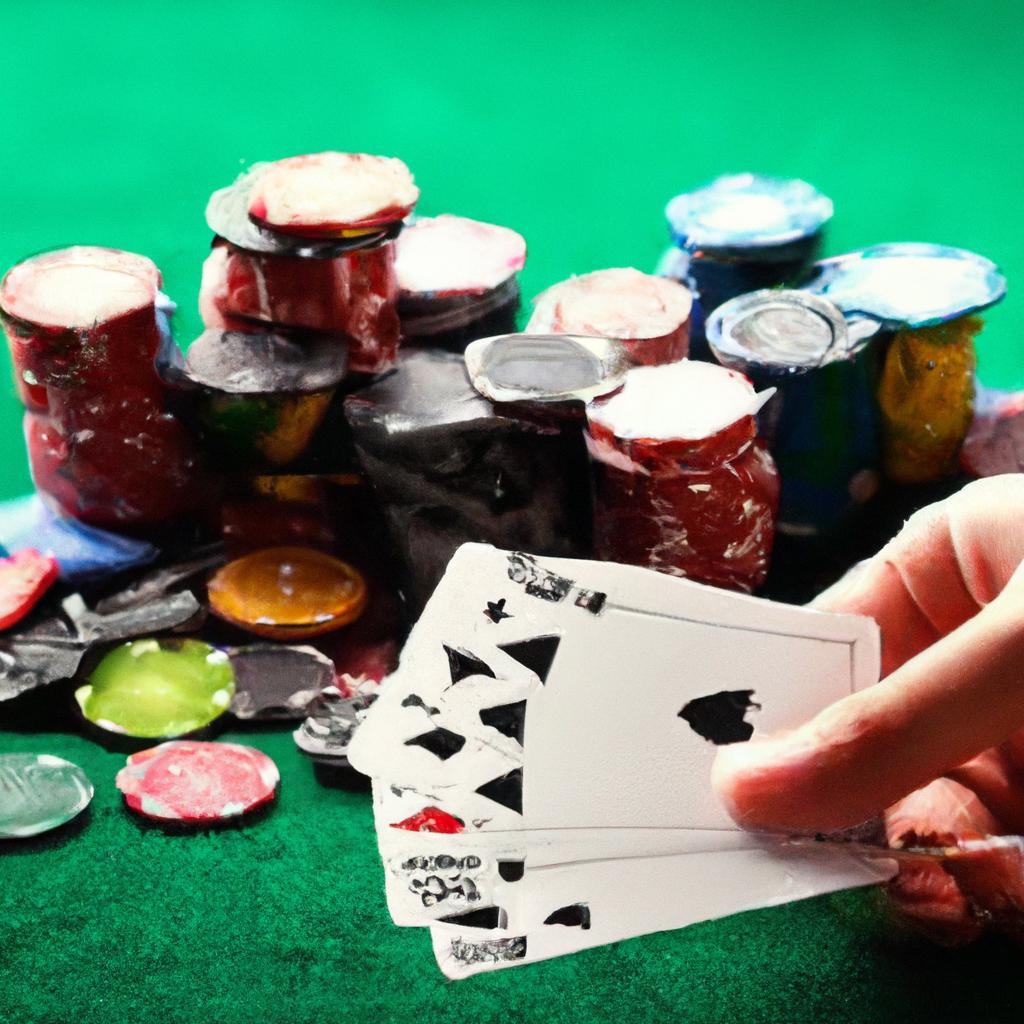In the vibrant world where fortunes can be won and lost in the blink of an eye, gambling captures the allure of risk and reward, beckoning players from all walks of life. Yet, beneath the glimmering surface of casinos and the thrill of high-stakes bets lies a darker reality—gambling addiction. This complex condition, often shrouded in stigma and misunderstanding, transforms innocent enjoyment into a relentless obsession, affecting not just the gamblers themselves but their families and communities as well.
As we delve into the intricacies of gambling addiction, we invite you to explore its psychological underpinnings, the societal forces at play, and the pathways toward recovery. Each spin of the wheel or shuffle of the cards can hold profound implications, inviting us to consider the fine line between entertainment and compulsion in this high-stakes game of chance.
Table of Contents
- Understanding the Psychology Behind Gambling Addiction
- Recognizing the Warning Signs and Symptoms
- Strategies for Recovery and Support Systems
- Building a Healthy Relationship with Risk and Reward
- Q&A
- Future Outlook

Understanding the Psychology Behind Gambling Addiction
Furthermore, psychological factors such as escapism and the need for control significantly contribute to gambling behavior. Many individuals gamble as a way to escape life’s stresses or to cope with anxiety and depression. This provides a temporary respite, but can ultimately lead to a deeper reliance on gambling as a means of emotional regulation. Additionally, cognitive distortions, such as believing that one can predict outcomes or that they are “due” for a win, can compound the problem. Understanding these psychological dynamics can inform both treatment options and prevention strategies, highlighting the importance of addressing the underlying issues prevalent in gambling addiction.

Recognizing the Warning Signs and Symptoms
Recognizing the subtle and overt indicators of gambling addiction is crucial for early intervention. Individuals may display various signs, including a noticeable change in behavior and emotional health. Common symptoms to watch for include:
- Increased Preoccupation: Constantly thinking about gambling, even when engaged in other activities.
- Financial Consequences: Experiencing financial troubles due to continuous gambling, including borrowing money or selling personal possessions.
- Withdrawal Symptoms: Feeling anxious or restless when attempting to reduce gambling activities.
- Escalation of Bets: Increasing the amounts wagered to achieve the same thrill.
- Neglecting Responsibilities: Failing to fulfill personal obligations, such as work or family commitments, due to gambling.
Additionally, the emotional toll can manifest in various ways. A consistent pattern of mood swings, irritability, or feelings of guilt and shame surrounding gambling activities are common indicators. It’s also significant to note social interactions; isolating oneself from friends and family or surrounding oneself with others who similarly engage in gambling can exacerbate the problem. Here’s a quick table summarizing these emotional and social symptoms:
| Emotional Symptoms | Social Symptoms |
|---|---|
| Guilt | Isolation |
| Anxiety | Neglect of Relationships |
| Depression | Compulsive Arguments |
Identifying these warning signs early can make a significant difference. For more information on gambling addiction, you can visit www.betreward.com.

Strategies for Recovery and Support Systems
The journey to recovery from gambling addiction requires a combination of personal commitment and external support systems. Individuals seeking to overcome their addiction are encouraged to utilize various resources and strategies, including:
- Professional Counseling: Engaging with a therapist who specializes in addiction can provide tailored strategies and coping mechanisms.
- Support Groups: Joining groups such as Gamblers Anonymous can foster a sense of community and shared experience among individuals facing similar challenges.
- Financial Management: Tools and techniques for managing finances and budgets can help regain control over monetary elements affected by gambling.
In addition to these personal strategies, building a robust support network is crucial for sustained recovery. This can include:
- Family and Friends: Open communication with loved ones about the struggles faced can create a strong network of emotional support.
- Online Resources: Websites like www.betreward.com offer helpful guidance and tools for those seeking to understand their addiction and recovery paths.
- Self-Help Materials: Books, documentaries, and online courses can provide insights and strategies that empower individuals to make positive changes.

Building a Healthy Relationship with Risk and Reward
- Acknowledge the Odds: Understanding that games of chance favor the house can help manage unrealistic expectations.
- Set Boundaries: Establishing strict financial limits can prevent spending beyond one’s means and foster a healthier approach.
- Focus on Enjoyment: Shifting the goal from winning to enjoying the experience can reduce the pressure associated with gambling.
To further comprehend the interplay between risk and reward, it’s beneficial to recognize the psychological aspects that influence decisions in gambling. The thrill of winning can create a pattern of behavior that leads individuals to chase losses, often resulting in escalating risk-taking. A guideline to recalibrate this relationship includes:
| Guideline | Description |
|---|---|
| Self-Reflection | Regularly assess your gambling habits and their impact on your life. |
| Seek Support | Connect with support groups or professionals if gambling becomes problematic. |
| Educate Yourself | Learn about the psychology of gambling to better understand your motivations. |
For more resources and strategies, visit www.betreward.com.
Q&A
Q&A on Gambling Addiction
Q1: What exactly is gambling addiction?
A1: Gambling addiction, or compulsive gambling, is an uncontrollable urge to gamble despite the negative consequences it may bring. It’s characterized by repeated attempts to control or cut back on gambling habits without success, leading to personal, social, and economic repercussions.
Q2: How can someone recognize the signs of gambling addiction?
A2: Common signs include preoccupation with gambling, increasing amounts of money wagered to achieve the same excitement, lying about gambling activities, and neglecting personal responsibilities. If someone finds themselves prioritizing gambling over significant relationships or letting financial issues spiral out of control, these could be key indicators of a problem.
Q3: Who is at risk of developing a gambling addiction?
A3: While anyone can potentially develop a gambling addiction, certain factors can increase the risk. These include a family history of gambling problems, easy access to gambling facilities, and having mental health issues such as depression or anxiety. Young adults may also be particularly vulnerable due to peer influences and a lack of life experience.
Q4: What are some physical and emotional effects of gambling addiction?
A4: Physically, individuals might experience stress-related symptoms, such as headaches or sleep disturbances. Emotionally, gambling addiction can lead to feelings of shame, guilt, anxiety, and depression. This emotional turmoil often fuels a destructive cycle of gambling as individuals may chase losses to escape these feelings.
Q5: Can gambling addiction be treated?
A5: Yes, treatment for gambling addiction is available and can be effective. Options include therapy, such as cognitive-behavioral therapy (CBT), support groups including Gamblers Anonymous, and sometimes medication to manage underlying mental health issues. The path to recovery often involves building a support network and learning coping mechanisms for stress.
Q6: What steps can someone take if they suspect they have a gambling addiction?
A6: If someone suspects they may have a gambling addiction, the first step is to seek help. This may involve talking to a healthcare professional or approaching a support group. Additionally, self-exclusion programs at casinos and online gambling sites can be effective. Engaging loved ones for support and committing to a budget can also assist in managing urges.
Q7: How does society view gambling addiction, and is there a stigma associated with it?
A7: While awareness of gambling addiction is growing, stigma can still linger. Many view it through the lens of personal failure, despite it being recognized as a legitimate mental health disorder. Education, compassion, and open discussions are vital in shifting this narrative and providing the necessary support to those affected.
Q8: What resources are available for those affected by gambling addiction?
A8: A range of resources exists, such as national helplines, local support groups, and online forums dedicated to gambling recovery. Websites like the National Council on Problem Gambling provide valuable information and resources. Additionally, therapy and counseling services can offer personalized support tailored to individual needs.
Q9: How can friends and family help someone struggling with gambling addiction?
A9: Friends and family can play a crucial role by expressing concern, encouraging treatment, and supporting their loved one throughout the recovery process. It’s important to approach the situation with empathy and understanding, providing a non-judgmental space that fosters open communication.
Q10: What’s the key takeaway in understanding gambling addiction?
A10: Ultimately, gambling addiction is a complex issue that requires compassion, awareness, and support. Recognizing it as a serious issue is the first step toward recovery, and offering help can make a significant difference in someone’s journey to regain control of their life. Understanding, listening, and advocating for open conversations are essential in creating a supportive environment for recovery.
Future Outlook
As we draw the curtain on our exploration of gambling addiction, it becomes clear that this complex issue is not merely a personal struggle but a societal challenge that demands our attention and empathy. The allure of the gamble can be enticing, a siren song that lures many into its depths—yet the consequences can be profound and far-reaching.
Understanding the nuances of gambling addiction is essential, be it for loved ones, individuals who find themselves caught in its web, or communities seeking to foster a culture of awareness and recovery. For every story of loss, there is also a narrative of resilience, hope, and the possibility of reclaiming one’s life.
As we continue to shine a light on this often-stigmatized topic, we pave the way for open conversations and strategies that can support healing. Whether through education, advocacy, or personal reflection, the path forward is one that invites us all to participate. Together, we can foster a future where informed choices and compassion rise above the glittering temptations that surround us. Let us remember that in every struggle is the seed of understanding and change, waiting to grow and flourish in the light of awareness.